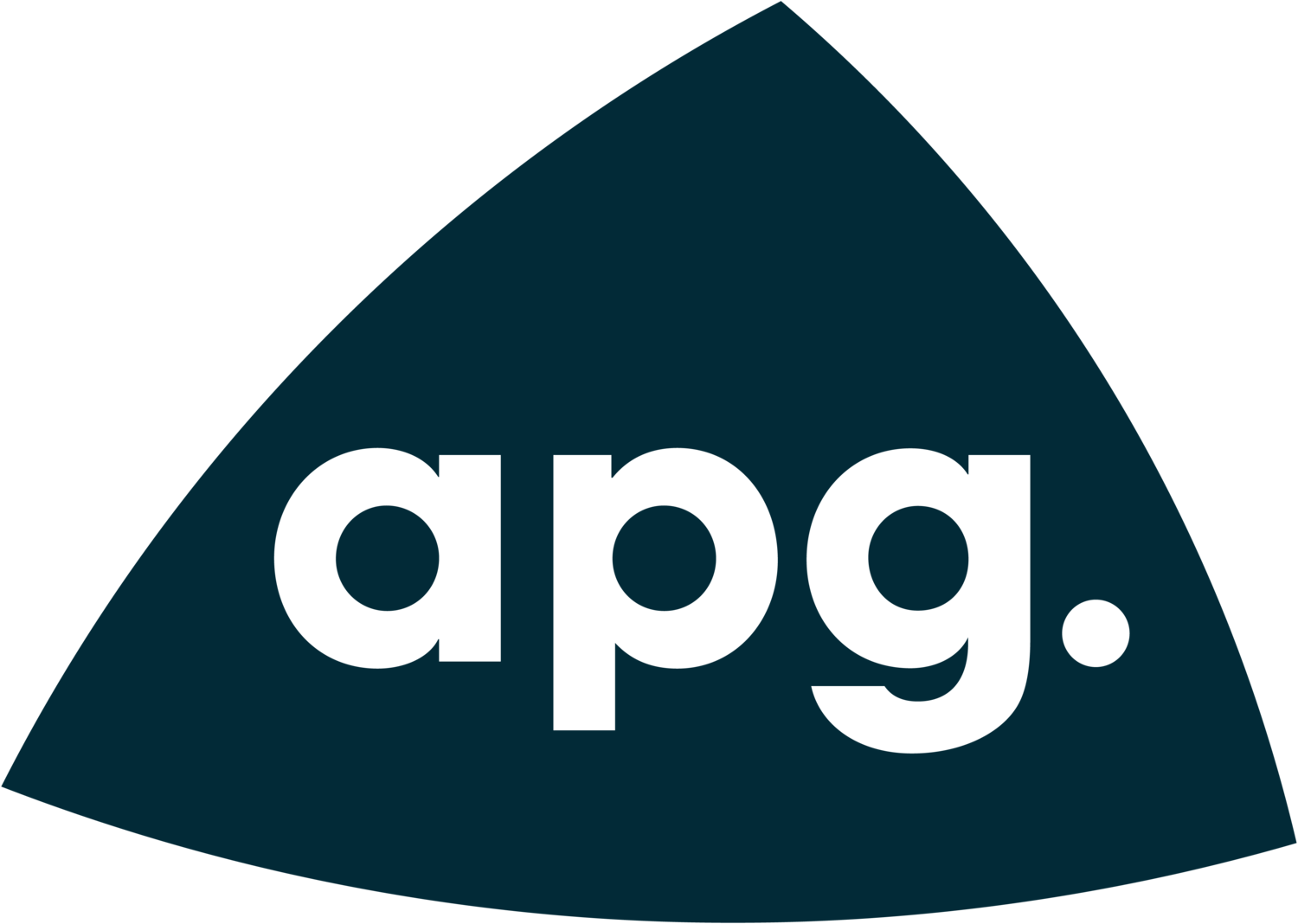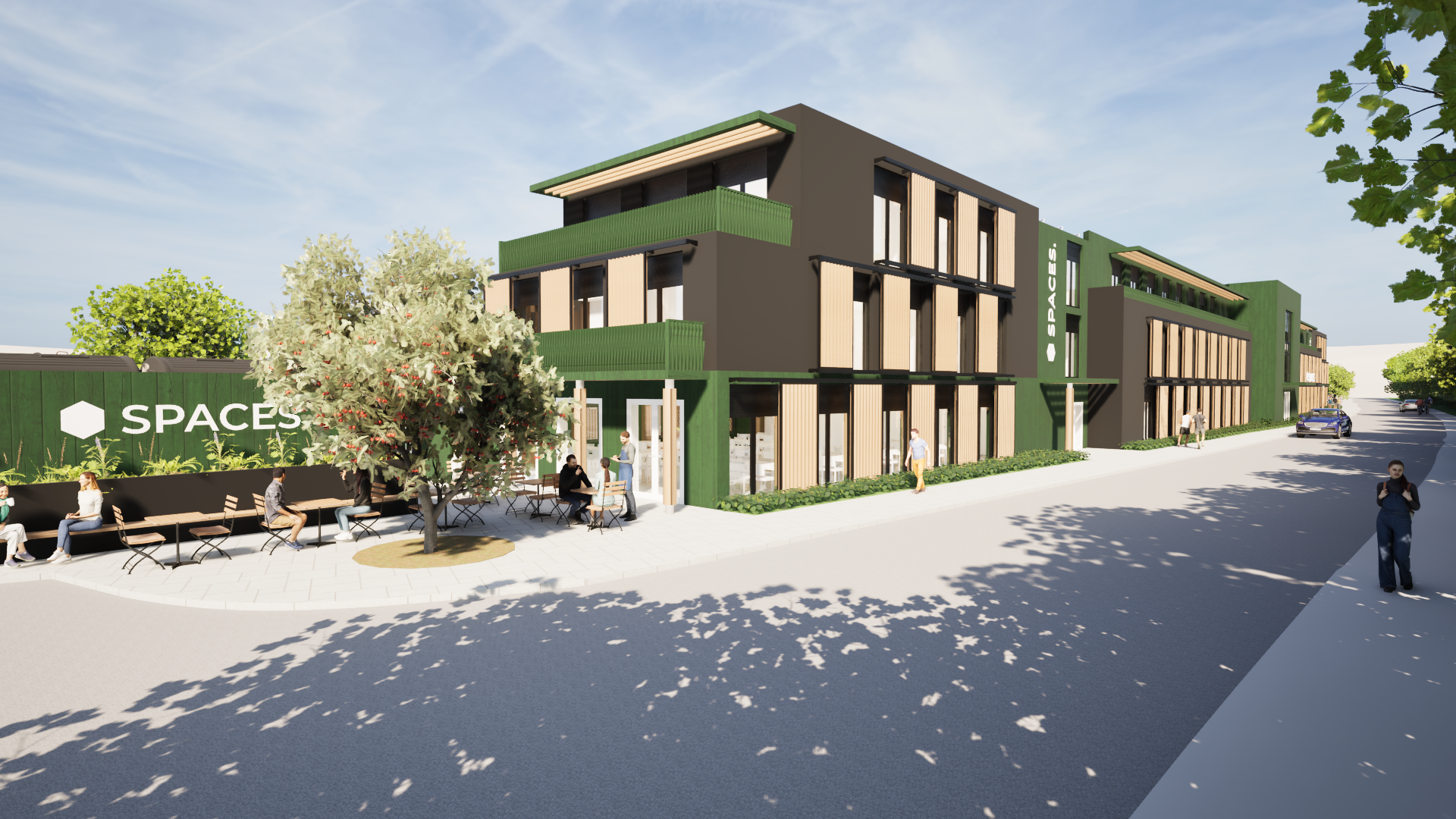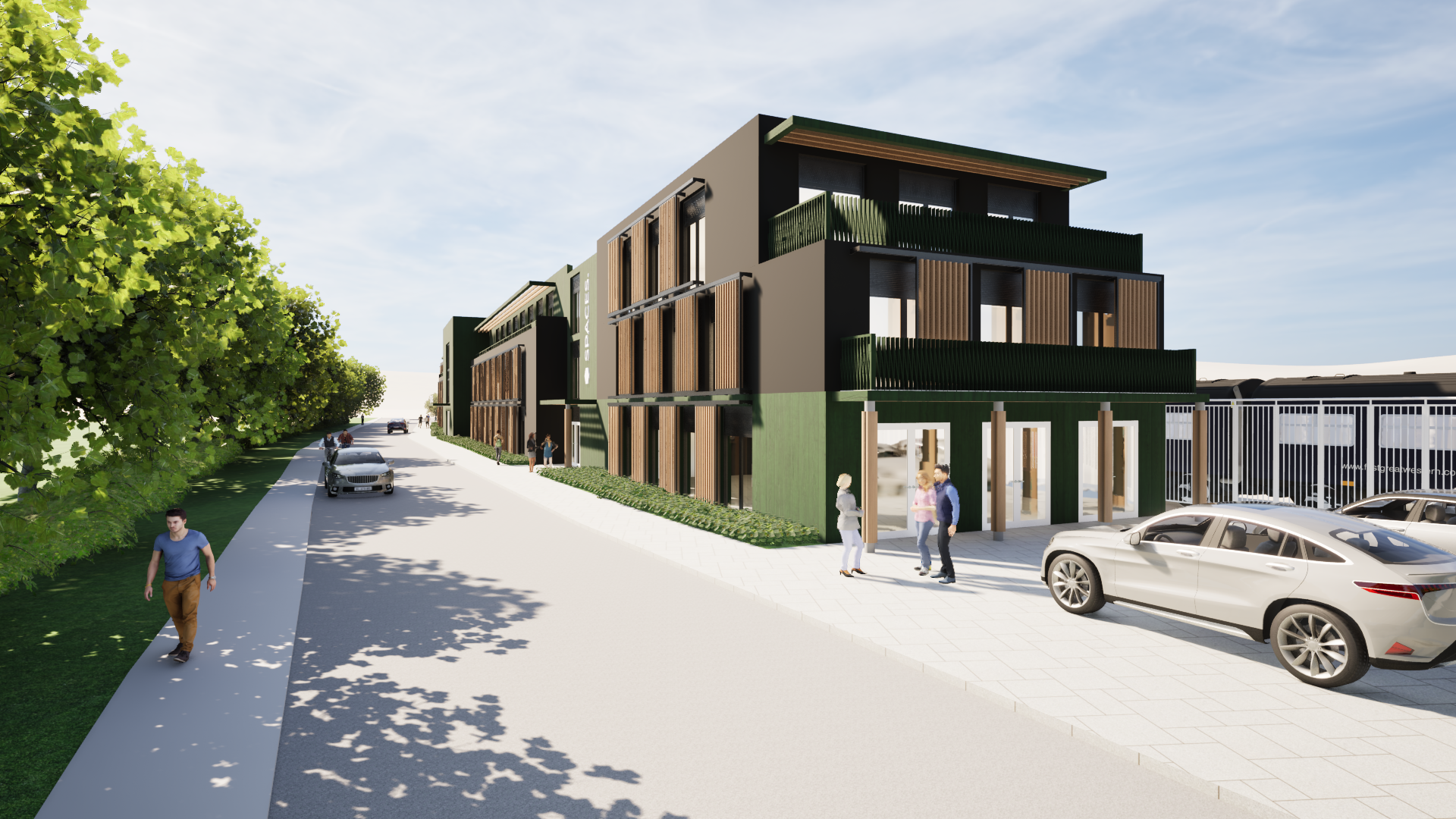Mainline
Mainline proposes an innovative workspace, café, and community facility adjacent to Patchway Station, transforming a strategically located site into a vibrant economic and social hub. With direct access to rail, cycle, and pedestrian routes, the development supports a low-carbon, connected lifestyle. By encouraging hybrid work models and fostering collaboration between businesses and the community, Mainline seeks to attract talent, energise the local economy, and offer a sustainable alternative to city-centre offices.
Third Place of Work
Post-pandemic working patterns have shifted the focus toward hybrid and decentralised workspaces. Mainline embraces this change by offering a “third place” of work—distinct from home and traditional office environments—where up to 800 people can work, meet, and connect. The building will include flexible business units, co-working zones, and communal facilities, integrated with a café and fitness/community space to support wellbeing, productivity, and social cohesion.
Architectural Approach
The three-storey building is designed to minimise visual impact along Station Road through a stepped-back top floor and articulated massing. Its facade uses two-tone black and green metal cladding, softened with timber solar shading and transparent ground-level glazing for active street engagement. Interior spaces extend outwards via third-floor terraces that support health and connection with the outdoors. The surrounding landscape references the site’s industrial heritage while introducing native fruit trees, raised beds, and communal seating areas. The architecture also incorporates habitat features such as bird, bee, and bat boxes.
Sustainable Strategy
Mainline’s sustainability strategy is comprehensive, addressing form, fabric, and technology:
Form: The building is oriented for optimal solar gain and shading. Roof areas are reserved for PV arrays and plant infrastructure.
Fabric: A high-performance envelope combines passive solar shading with off-site construction methods to reduce waste.
Technology: Smart systems—IoT-enabled lighting, HVAC, and air-quality monitoring—boost operational efficiency. Rooftop PVs, MVHR systems, and water-saving measures (including potential rainwater harvesting) support low operational carbon. EV charging and integrated ecology features further reinforce the project’s regenerative goals.
Mainline redefines what a sustainable, inclusive, and community-focused employment space can be in the 21st century.





